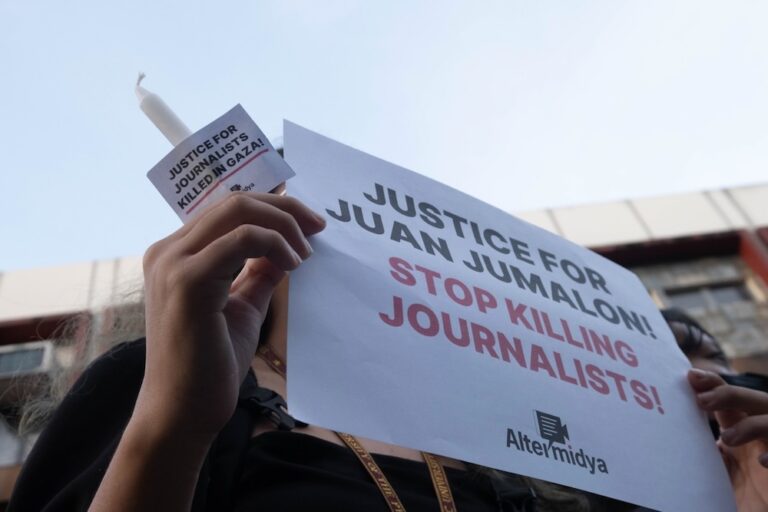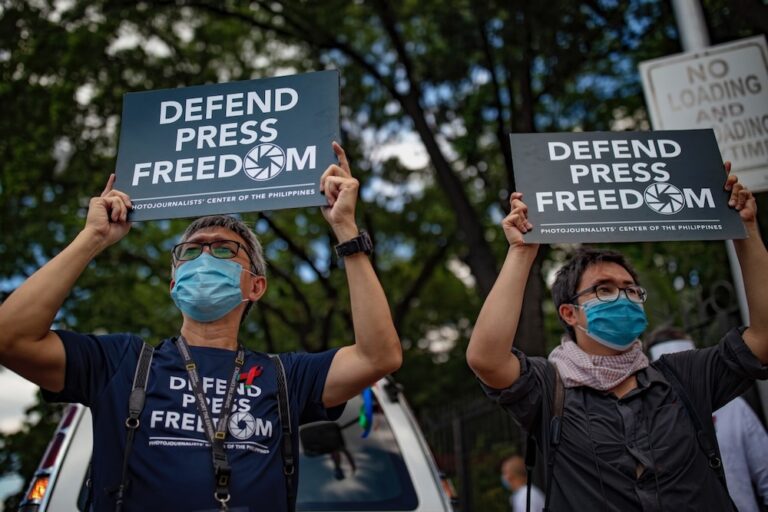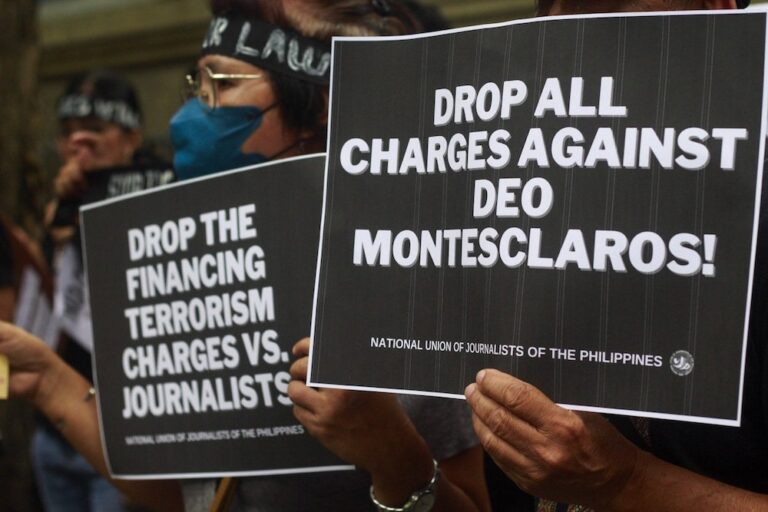(SEAPA/IFEX) – The Southeast Asian Press Alliance is gravely concerned by the declaration of a state of emergency in the Philippines and condemns in the strongest possible terms government moves to curtail freedom of the press in the context of the political chaos. On 24 February, President Gloria Macapagal-Arroyo declared a national state of emergency […]
(SEAPA/IFEX) – The Southeast Asian Press Alliance is gravely concerned by the declaration of a state of emergency in the Philippines and condemns in the strongest possible terms government moves to curtail freedom of the press in the context of the political chaos.
On 24 February, President Gloria Macapagal-Arroyo declared a national state of emergency to pre-empt an alleged coup against her government.
On 25 February, police raided the offices of the pro-opposition newspaper, “Daily Tribune”, while the National Telecommunications commission threatened broadcast networks with closure or takeover if they did not adhere to government rules on coverage. News reports say that some journalists are under surveillance and that officials are to discuss with newspaper publishers possible guidelines for reporting on the country’s volatile situation.
“The harassment of the press is uncalled for, the guidelines are unnecessary and unconstitutional, and the whole move to control the media is suspicious,” SEAPA Executive Director Roby Alampay said.
The government’s actions clearly showed that the press had become the target of a crackdown, he said.
“Amid allegations that the Philippine president is either overreacting to or overstating an alleged threat to the state, it is imperative that Philippine journalists be allowed to do their job without fear of reprisals from the military and/or the government.”


